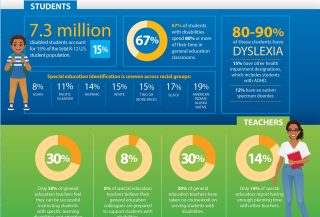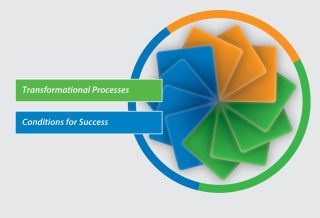RESEARCH
Study explores mentoring’s connection to new teacher retention
By Elizabeth Foster
Categories: Learning systems/planning, Mentoring & induction, Reaching all students, Standards for Professional LearningAugust 2022
Read the remaining content with membership access. Join or log in below to continue.
Sed ut perspiciatis unde omnis iste natus error sit voluptatem accusantium doloremque laudantium, totam rem aperiam, eaque ipsa quae ab illo inventore veritatis et quasi architecto beatae vitae dicta sunt explicabo. Nemo enim ipsam voluptatem quia voluptas sit aspernatur aut odit aut fugit, sed quia consequuntur magni dolores eos qui ratione voluptatem sequi nesciunt. Neque porro quisquam est, qui dolorem ipsum quia dolor sit amet, consectetur, adipisci velit, sed quia non numquam eius modi tempora incidunt ut labore et dolore magnam aliquam quaerat voluptatem.
A national perspective on mentoring practices
It is helpful to balance a look at a close study of one district mentoring program over a short period of time with a look at a large national longitudinal analysis. A recent analysis of several years of data from a national survey of new teachers in the United States examined new-teacher retention and how mentoring practices might predict it.
The study
Maready, B., Cheng, Q., & Bunch, D. (2021). Exploring mentoring practices contributing to new teacher retention: An analysis of the beginning teacher longitudinal study. International Journal of Evidence Based Coaching and Mentoring, 19(2), 88-99.
Researchers conducted a secondary analysis of data from the Beginning Teacher Longitudinal Study conducted by the U.S. Census Bureau from the 2007-08 school year through the 2011-12 school year. This national survey was designed by the U.S. Department of Education’s National Center for Education Statistics to follow educators’ career paths and gather data about the reasons they stay, change positions or schools, or leave the profession. (Note that the researchers used prepandemic data, and there is no discussion of the pandemic, school closures, virtual learning, or the impact of any of those factors on educator stress levels, wellness, or intent to stay in or leave the profession.)
Fourteen out of the 23 mentoring practices studied predicted new teachers’ retention in the same teaching assignment for a second year. Nine of the practices predicted retention in the teaching profession into the fifth year. Seven practices predicted both.
Practices that were significant for both timeframes included having a mentor who taught the same subject as the new teacher and provided frequent support in selecting and adapting curriculum. In addition, retention was more likely when new teachers reported that the mentor’s support improved a variety of instructional methods and classroom management.
Factors that predicted retention only into the first year included having a mentor whose main job was mentoring and who provided frequent supports in subject and grade-level instruction. Factors that predicted retention in the fifth year but not the second included frequent observations by the mentor and frequent support in reflecting on teaching practice.
These findings suggest that high-quality mentoring does make a difference for teacher retention, and they provide insight for making decisions about priorities in program design and resource allocation.
References
Carroll, T. (2007). The high cost of teacher turnover. National Commission on Teaching and America’s Future.
Carver-Thomas, D. & Darling-Hammond, L. (2017). Teacher turnover: Why it matters and what we can do about it. Learning Policy Institute.
Learning Forward. (2022). Standards for Professional Learning. Author.
Pearson, F. & Fuglei, M. (2019). Keeping teachers of color: Recruitment is not the problem. Journal of Curriculum, Teaching, Learning and Leadership in Education, 4(1), Article 5.

Elizabeth Foster is the senior vice president of research and strategy at Learning Forward. She leads the organization’s research efforts for partnerships, programs, and fundraising. Elizabeth co-wrote the Standards for Professional Learning (2022) with Tracy Crow and now facilitates learning sessions about the standards and develops resources that support their use and implementation.
Categories: Learning systems/planning, Mentoring & induction, Reaching all students, Standards for Professional Learning
Recent Issues
LEARNING DESIGNS
February 2025
How we learn influences what we learn. This issue shares essential...
BUILDING BRIDGES
December 2024
Students benefit when educators bridge the continuum of professional...
CURRICULUM-BASED PROFESSIONAL LEARNING
October 2024
High-quality curriculum requires skilled educators to put it into...
LEARNING TO PIVOT
August 2024
Sometimes new information and situations call for major change. This issue...












